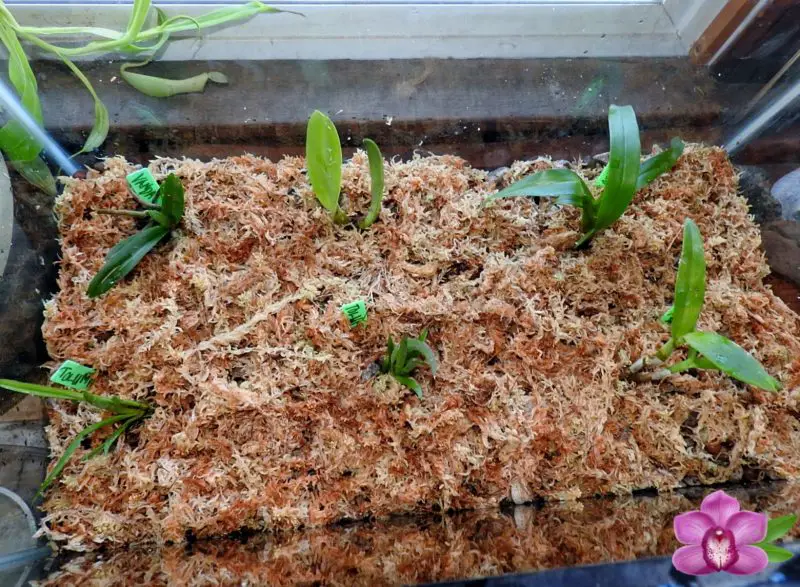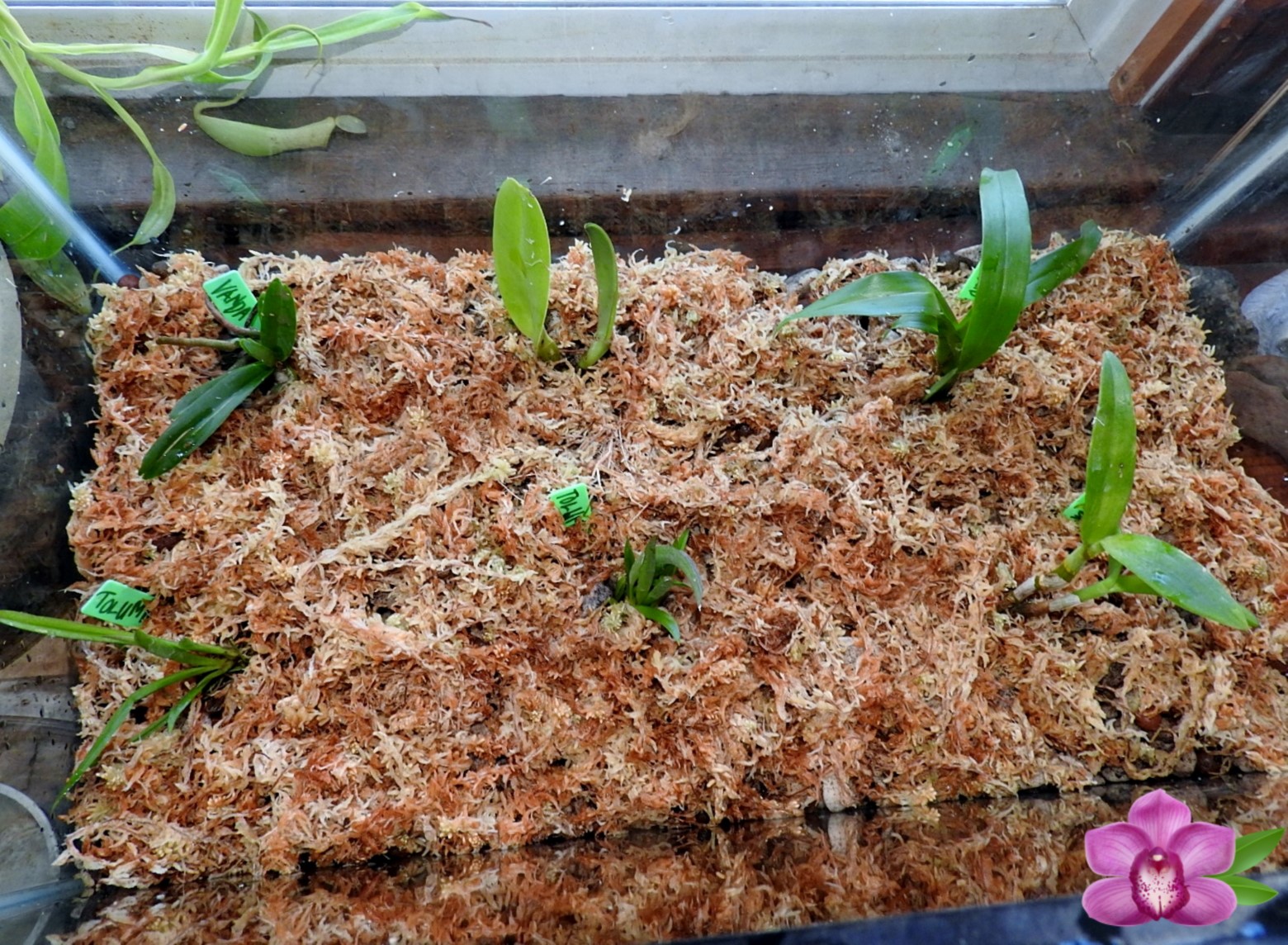
Do orchids need humidity? Orchids do require a certain level of humidity to thrive.
Most orchids prefer a relative humidity of 40% to 70%. But some orchids can grow fine with less humidity.
If the air in your home is too dry, there are a few things you can do to raise the humidity levels and help your Orchids stay healthy.
Orchids Are Diverse
Orchids are a diverse and widespread family of plants that come in all shapes, sizes, and colors.
They grow everywhere from tropical jungles, to seashores, to alpine meadows. So some will prefer more humidity than others.
Though they are often thought of as delicate or difficult to care for, with the right knowledge and attention, anyone can successfully grow healthy and vibrant orchids.
If you are concerned about humidity you can choose orchids that don’t need high humidity.
Low Humidity Orchids
Believe it or not, some orchids will grow just fine in low humidity. So you don’t need to live in a sauna to grow them.
One of these is phalaenopsis or moth orchids. They are the most common orchid that most people have. But there are others!
Watch this video to find 6 orchids that grow well in low humidity.
For more helpful orchid videos check out her youtube channel here.
How do you keep orchids humid?
There are a few different ways that you can supply extra humidity to your Orchids.
One way is to put them on a tray of pebbles and water. The water will evaporate and raise the humidity around the Orchids.
Another way is to use a humidifier, which can be placed near the plants or in the room where they are kept.
The use of a small humidifier can provide your orchids with the extra humidity they need but allow lower humidity levels elsewhere.
In addition to raising the level of humidity, it is also important to provide good airflow around the Orchids.
You can help provide good airflow with a fan. By circulating the air, you will help to prevent stagnant air, which can lead to disease.
Remember, most orchids require a higher level of humidity than most houseplants, so take steps to increase the humidity around them.
Build On Orchid Terrarium
I built an orchid terrarium from an old fish tank. The humidity in my apartment is pretty low during the heating season.

My climate is fairly cool so the heating season can be 6-9 months depending on what mother nature sends our way.
It is a pretty easy DIY project and my orchids are loving it.
Find out how I built it here: Orchid Terrarium DIY [An Unusual Fish Tank Transformation] – Hydroponic Orchids
Can orchids survive in low humidity?
Orchids generally require a humidity level of 40-70%. If the air in your home is too dry, there are things you can do to raise the humidity.
Orchids are still able to grow even when humidity levels are less than ideal and some orchids do well with lower humidity than others.
Because orchids are such a diverse group of plants, they have different humidity and watering needs.
Some orchids thrive in high humidity and will benefit from regular misting.
Others prefer drier conditions and should only be misted sparingly.
When in doubt, it is always best to check with a nursery or experienced grower to find out what watering schedule and humidity level is best for your particular Orchid.
Do orchids like misting?
One important factor in caring for an orchid is making sure that it gets enough moisture. Orchids enjoy being misted.
Orchids typically like to be misted once or twice a day, and some even prefer to have their leaves constantly moistened.
It is much better to raise humidity by misting than by overwatering your plants.
Some growers will even set up their orchids in a humidifier or terrarium to make sure that the air around the plant is always moist.
Whether you mist your orchid daily or set it up in a humid environment, make sure not to let the roots of the plant sit in water, as this can lead to root rot.
Tracking Humidity Levels
It is important to keep track of the humidity levels in your home, especially if you are growing Orchids.
A hygrometer or humidistat can help you do this by monitoring the humidity levels in the air.
You can make sure that your Orchids are getting the right amount of moisture and adjust your care accordingly.
With a little bit of effort, you can provide the ideal conditions for your Orchids and enjoy their beauty for many years to come.
Can Orchids Survive In Low Humidity?
It’s a question that many people ask, as orchids are often associated with tropical humid climates.
However, the answer is not as simple as a yes or no. While orchids do need high humidity to thrive, they can still survive in lower levels of humidity.
The key is to make sure that they are getting enough moisture. If the air is too dry, the leaves of the plant will start to turn brown and curl. The flower buds may also drop off before they have a chance to open.
To help an orchid survive in low humidity, water it regularly and mist the leaves with a spray bottle.
Also, try to keep the plant out of direct sunlight, as this can further dry out the air.
With a little care, it is possible for an orchid to thrive even in low humidity environments.
Can orchids live in high humidity?
Orchids are an adaptable species of plants, capable of adjusting to a wide range of growing conditions.
While many orchids we grow originate in tropical regions with high humidity, they can also thrive in drier climates.
In general, orchids prefer an environment with moderate humidity levels, around 40-70%.
However, they can tolerate higher levels of humidity for short periods of time.
When the humidity is too low, orchids will often suffer from dehydration, causing their leaves to wrinkle or turn brown and their flowers to wilt.
On the other hand, if the humidity is too high, orchids can become susceptible to fungal infections.
As such, it is important to provide orchids with the right level of humidity to ensure their health and well-being.
Can orchids have too much humidity?
Most orchids we grow are epiphytes native to tropical regions and thrive in warm, humid environments.
In fact, they often require more humidity than most people are comfortable with in their homes.
While it is possible to provide too much humidity for an orchid, it is more likely that the plant will suffer from too little humidity.
When the air is too dry, the leaves of the orchid can begin to brown and curl at the edges. The plant may also become stunted and produce fewer flowers.
If you suspect that your orchid is not getting enough humidity, try misting the plant regularly or setting it on a pebble tray filled with water.
With a little extra moisture, your orchid should soon be back to its healthy self.
Different Ways To Raise The Humidity
Most people know that high humidity can be uncomfortable, but did you also know that it’s important for your health?
If the air in your home is too dry, it can lead to sore throats, dry skin, and exacerbation of allergies and asthma.
So low humidity can be hard on orchids too. We don’t want our orchids to be unhealthy either.
Fortunately, there are a few different ways to raise the humidity levels in your home. One option is to use a humidifier.
This can be either an electric or ultrasonic model, and it will release water vapor into the air, increasing the humidity.
Another option is to place bowls of water around your home, which will gradually evaporate and raise the humidity levels.
Finally, you can also try boiling water on the stovetop, which will quickly raise the humidity in a small space.
By taking one of these steps, you can improve your health and comfort this winter.
Do Orchids Need Humidity? Final Thoughts
Orchids are a beautiful and popular type of plant that generally require a higher level of humidity than most other plants.
There are a few different ways that you can increase the humidity around your Orchids, such as placing them on a tray of pebbles and water or using a humidifier.
Orchid species are so varied that some orchids do just fine in lower humidity. So if you want lower maintenance you should grow those.
Bear in mind that most orchids do prefer warmer temperatures and bright indirect light and this may be more important than humidity.
Read more: Are Orchids Hard To Take Care Of? Easy Growth Formula
This post contains affiliate links.



